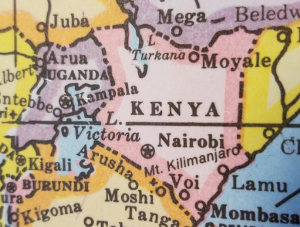By NewsDesk @infectiousdiseasenews
Public health officials in Mombasa, Kenya are reporting an outbreak of dengue fever. Increased cases of fever in adults and children visiting hospitals in the six sub-counties in Mombasa.

Officials report 24 dengue fever cases have been laboratory confirmed. No deaths have been reported.
The mosquito-borne infection is expected to get worse according to officials–County Director of Public Health Salma Swaleh warned that the situation could worsen due to heavy rains.
“We decided to issue an alert because we do not want to be caught off guard,” said Dr Swaleh, noting the expected long rains would increase mosquito population.
Dengue is a viral infection transmitted by the bite of an infected mosquito. There are four closely related but antigenically different serotypes of the virus that can cause dengue (DEN1, DEN 2, DEN 3, DEN 4).
Dengue Fever (DF) – marked by an onset of sudden high fever, severe headache, pain behind the eyes, and pain in muscles and joints. Some may also have a rash and varying degree of bleeding from various parts of the body (including nose, mouth and gums or skin bruising).Dengue has a wide spectrum of infection outcome (asymptomatic to symptomatic). Symptomatic illness can vary from dengue fever (DF) to the more serious dengue hemorrhagic fever (DHF).
Dengue Hemorrhagic Fever (DHF) – is a more severe form, seen only in a small proportion of those infected. DHF is a stereotypic illness characterized by 3 phases; febrile phase with high continuous fever usually lasting for less than 7 days; critical phase (plasma leaking) lasting 1-2 days usually apparent when fever comes down, leading to shock if not detected and treated early; convalescence phase lasting 2-5 days with improvement of appetite, bradycardia (slow heart rate), convalescent rash (white patches in red background), often accompanied by generalized itching (more intense in palms and soles), and diuresis (increase urine output).
Dengue Shock Syndrome (DSS) — Shock syndrome is a dangerous complication of dengue infection and is associated with high mortality. Severe dengue occurs as a result of secondary infection with a different virus serotype. Increased vascular permeability, together with myocardial dysfunction and dehydration, contribute to the development of shock, with resultant multiorgan failure.
Leishmaniasis outbreak reported in Mandera, Kenya
Kenya Rift Valley fever outbreak update
Kenya reports anthrax outbreak in Sotik
Kenya: 1/4 of counties have reported cholera
Kenya: Maternal and neonatal tetanus eliminated



2 thoughts on “Kenya: Mombasa on alert over dengue fever”